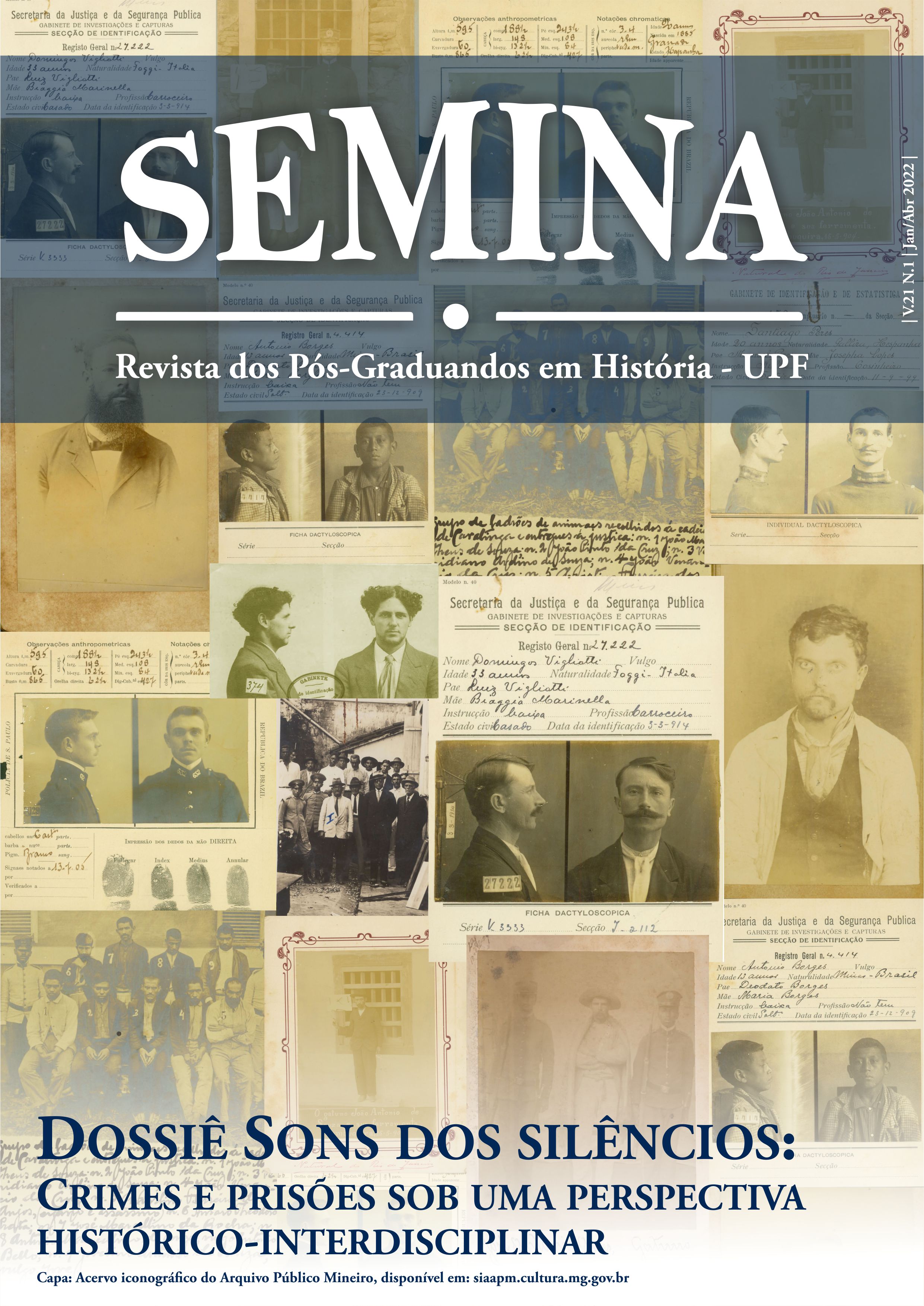Aspects of the entry of the goda confederation into the lands of the roman empire
:political power and the attempt to affirmate the monarchy and the aristocratic nucleus in the visigod kingdom (4th and 5th centuries)
DOI:
https://doi.org/10.5335/srph.v21i1.13304Keywords:
Aristocracies, Monarchy, VisigothsAbstract
We will carry out a historiographical debate on important aspects of the entry of the Visigoths into the lands of the Roman Empire, considering the relationship between the Visigothic confederation and the imperial power, especially in the meaning of hospitalitas. We will understand the arrival of the Visigoths in the territories of Gaul and Hispania, meeting the political, economic and Roman military interests and supplying the material needs that contributed to the attempt of cohesion of the Visigoths. We will analyze the political, social and economic situation of the Visigoths in the face of the process of disintegration that marked the end of the Western Roman Empire, considering the relations between aristocratic nucleus, monarchy and regional aristocracies to understand the power structure and the process of trying to affirm the monarchy authority among the Visigoths.
Downloads
References
BURNS, T. S, The Settlement of 418, in DRINKWATER Y ELTON, eds., Fifth-century Gaul, 1992.
Codex Theodosianus (CTh).VII.8.3 In: IMPERATORIS THEODOSII CODEX - LIBER SEPTIMUS. Disponível em: http://ancientrome.ru/ius/library/codex/theod/liber07.htm#8. Acessado em 12 de Maio de 2021.
COLLINS, Roger. La España visigoda, 409-711. Barcelona: Crítica, 2005.
GARCIA DE CORTÁZAR, José Angel. La primera articulación de los elementos constitutivos de la sociedad medieval. História de España. La Época Medieval. Madrid: Alianza, 1988. pp. 19-54.
BURNS, T. S, The Settlement of 418, in DRINKWATER Y ELTON, eds., Fifth-century Gaul, pp. 281-282. Disponível em: https://www.academia.edu/39238035/_The_Settlement_of_the_Goths_in_Aquitania_418_or_419_. Acesso em 07 de maio de 2021.
GARCÍA MORENO, L. A. Historia de España Visigoda. Madri: Catedra, 1998.
GOFFART. Walter. Barbarians and romans: A.D. 418-584. The techniques of accommodation. Princeton: Princeton University Press, 1980.
GUERRAS, Maria Sonsoles. A realeza visigótica no livro da “História dos Godos” de Isidoro de Sevilha. Revista do Departamento de História, Belo Horizonte: UFMG, v. 7, 1988.
GUZZO, Patrick Zanon. Formação e reprodução da aristocracia visigoda (séculos V-VIII). 2017. 167 f. Dissertação (Mestrado em História Social) – Universidade Federal Fluminense, Niterói, 2017.
HEATHER, P. J. The Visigoths From Migration Period To The Seventh Century: an ethnographic perspective. Boydell & Brewer Ltd., 1999.
WOLFRAM, H. History of the Goths. Berkeley, Los Angeles, Londom: University Of California Press, 1987
PIRRENE, Henry. Historia de Europa: desde las invasiones al siglo XVI. México, DF: Fondo de Cultura Economica, 1942.
SANTIAGO CASTELLANOS. Los godos y la Cruz: Recaredo y la unidad de Spania. Madrid: Alianza, 2007.
ZEUMER. Karl. "Historia de ia legislación visigoda", Barcelona, 1944.
Downloads
Published
Issue
Section
License
Autores que publicam nesta revista concordam com os seguintes termos:
- Autores mantêm os direitos autorais e concedem à revista o direito de primeira publicação, com o trabalho simultaneamente licenciado sob a Licença Creative Commons Atribuição 4.0 Internacional – CC-BY que permitindo o compartilhamento do trabalho com reconhecimento da autoria do trabalho e publicação inicial nesta revista.
- Autores têm autorização para assumir contratos adicionais separadamente, para distribuição não-exclusiva da versão do trabalho publicada nesta revista (ex.: publicar em repositório institucional ou como capítulo de livro), com reconhecimento de autoria e publicação inicial nesta revista.
- Autores têm permissão e são estimulados a publicar e distribuir seu trabalho online (ex.: em repositórios institucionais ou na sua página pessoal), a qualquer ponto antes ou durante o processo editorial, já que isso pode gerar alterações produtivas, bem como aumentar o impacto e a citação do trabalho publicado, de acordo ainda com a democratização científica prevista pela Ciência Aberta.





